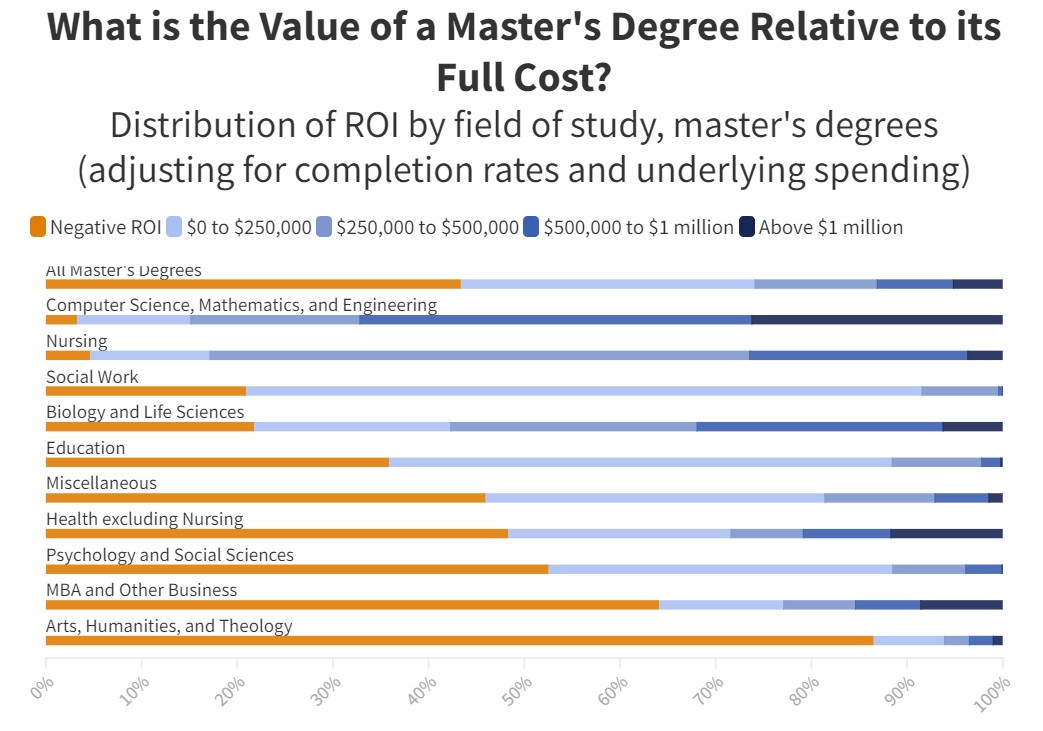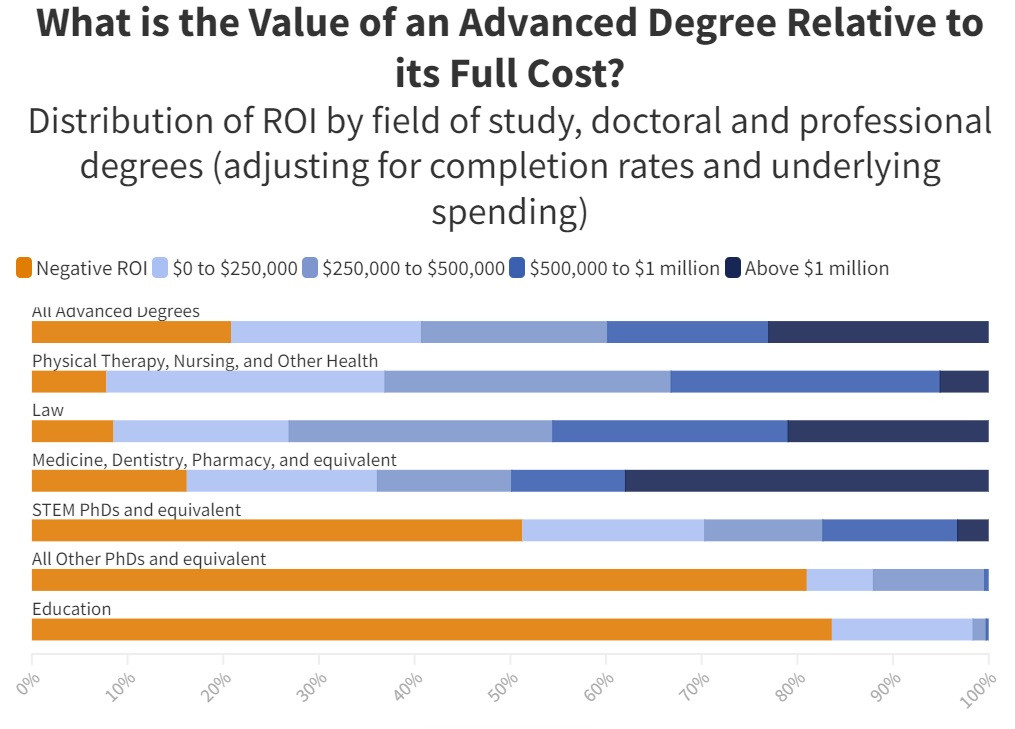My child attends an elite college. It is overrated.
Anonymous
+1. If the PP had said ROI was the main point of your terminal degree she would have my agreement. |
Anonymous
|
I'm in the C-Suite, make $300k+ and did not get into my field or career path due to connections or why/where I went to school. I worked hard, was hungry, ambitious and willing to work for peanuts in the beginning to gain knowledge in my field and climb the ladder. I made wise career moves/choices the more experience I gained and was not easily swayed into a new job by money but instead by the organizations themselves.
Any graduate out of college who thinks they'll make six figures in their first job needs you as their parent to talk them down from that. Of course there are exceptions - those people come from multi-generational wealth, have connections within family or friends/parents of friends and apart from the aggressive Harvard Business School types, have no idea how to work hard for anything because everything has been handed to them. And so it goes until the end of time. |
Anonymous
That’s not the point you made. You included MA and PhD which are not high ROI grad degrees. (MA can be if it’s the right field but generally not.) |
Anonymous
Meant to type MBA (which is a high ROI grad degree) not MA. And some Ph.D's make great living in consulting, patent royalties, etc. Some don't. Depends on the field. |
Anonymous
it's 2022, six figures out of college is not that unusual. not sure anyone should be taking career advice from you - expecting people to work for peanuts? sounds like you just like exploiting labor. |
Anonymous
MBA is not a high ROI grad degree unless it's at a high-prestige school. MBA programs often draw from high-earning undergraduate majors such as business and accounting. This pushes up counterfactual earnings for MBA graduates. As a result, MBA programs have to “work harder” to supply their students with earnings that exceed the opportunity cost. Many MBA programs fail to do this. Much the same with tech PhDs that give a misleadingly high ROI. The person who got that PhD was already in a tech field and would have done very well without the PhD. Opportunity cost of that PhD was probably too high. 

|
Anonymous
+100 The PP also sounds like a white male. Much easier to "work your way up the corporate latter" when the standard of professionalism looks like you. |
Anonymous
Okay. So what do you suggest a middle class student with a BA in English do besides law school? They're SOL. No way to save up for a downpayment on a house or pay back student loans (if they have any) with a graduate or undergraduate degree in the humanities (except a JD). |
Anonymous
Yep. You are correct. No jobs for them. Except for the million or so types of jobs that have no corresponding college major and benefit from good communications skills. There are loads of Humanities majors making bank in tech and other fields. Oh and BTW you clearly don't understand ROI or you would demand all college grads pursue investment banking regardless of major.. |
Anonymous
People like you are causing the national student debt crisis, and begging for debt forgiveness with the tax I paid. |
Anonymous
Who are these people 


|
Anonymous
Uh don't major in English in the first place? |
Anonymous
Kids who went to University of Phoenix. |
Anonymous
You can become CEO of Disney, like Michael Eisner. https://en.wikipedia.org/wiki/Michael_Eisner |
Anonymous
Dropping out of college is better - Bill Gates, Mark Zuckerberg |

